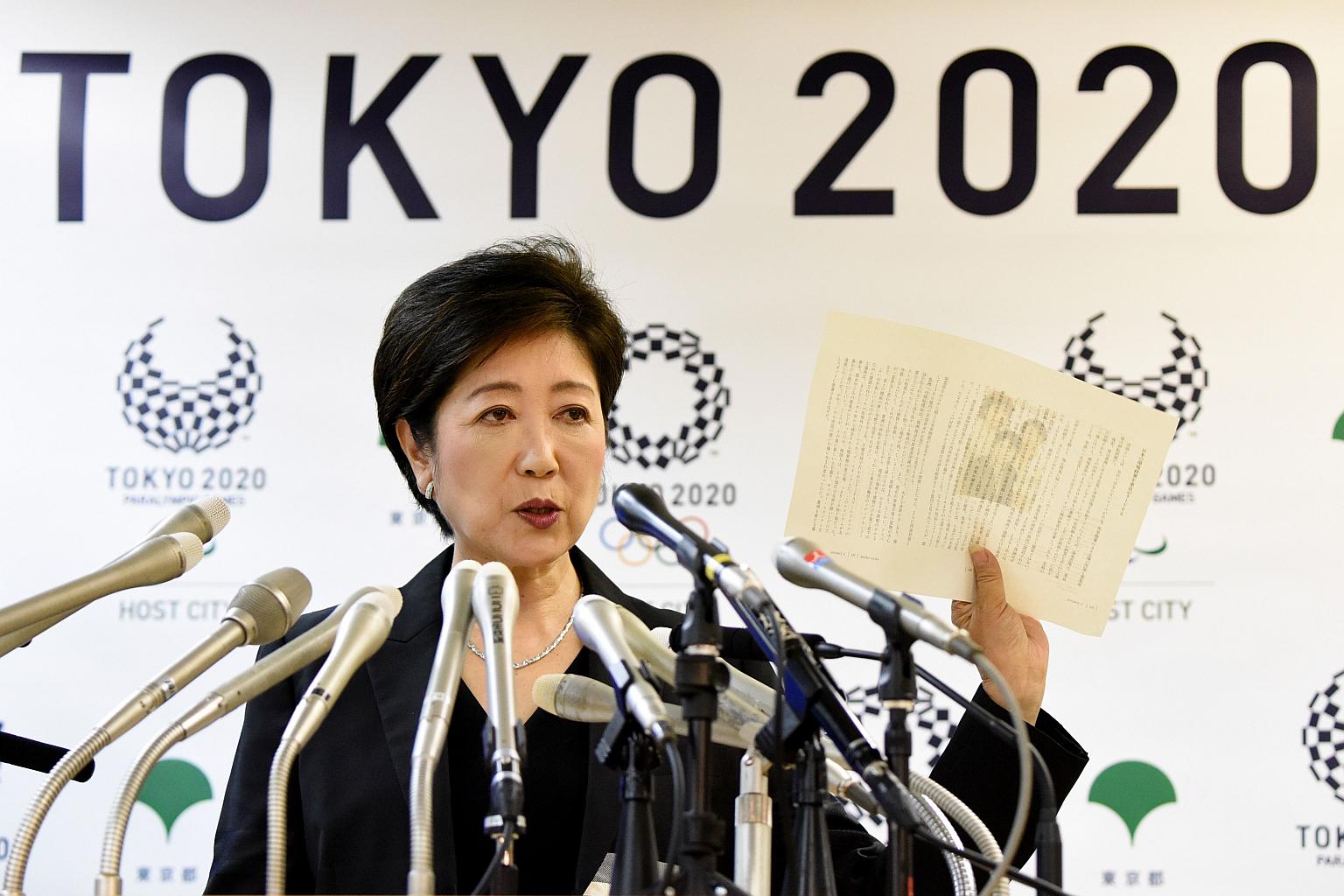New Tokyo governor determined to slash costs of hosting Olympics by cutting her own salary
Sign up now: Get insights on Asia's fast-moving developments

Tokyo Governor Yuriko Koike answers questions during a press conference in Tokyo on Aug 31, 2016.
PHOTO: AFP
Follow topic:
TOKYO (Bloomberg) - Just weeks after the closing ceremony in Brazil, new Tokyo Governor Yuriko Koike says the clock is ticking to slash ballooning costs for the 2020 Olympic Games in Japan.
Ms Koike, who ran against her own party to beat a candidate backed by Prime Minister Shinzo Abe, said in an interview on Thursday (Sept 8) she has up to 18 months to come up with a plan to curtail the expense of hosting the event. As a start, she's trying to halve her own salary.
The 64-year-old former newscaster, who has served as defence and environment minister, won July's election to become the Japanese capital's first female leader on a promise to rip open the "black box" of the city's government.
She is starting by reviewing plans for the Olympics, with a mid-term report due before the city's assembly opens on Sept 28.
"I believe this will lead to cutting costs," Ms Koike said in her Tokyo office, where the walls are lined with pictures of her predecessors. "It's obvious that the budget is growing bigger and bigger, just like in the bubble period," she added, referring to the overheated Japanese economy that burst after stock prices peaked in late 1989.
She told reporters before the July election that she'd heard the budget had swollen to six times the original estimate of 310 billion yen (S$4 billion). That compares with spending of 7.4 billion reals (S$3.1 billion) for the Rio Olympics. Her government-backed rival Hiroya Masuda said it was unclear what the cost of the games would be.
Japan's initial jubilation over the winning bid has faded amid a series of scandals. A futuristic design for the flagship stadium was scrapped over soaring costs, the logo was changed after accusations of plagiarism, and French prosecutors said earlier this year they were probing a payment made to a Singapore company in connection with the bidding process.
To avoid a sharp rise in the cost of construction materials, Ms Koike said that final plans must be in place about 2.5 to three years before the event opens in July 2020. She wants some venues to be temporary - along the lines of London 2012's beach volleyball site and Rio's swimming pool - with the building materials to be reused.
She said the first step in "showing her determination" to cut costs will be to propose to the Tokyo assembly that her own salary be halved from the current figure of about 29 million yen per year.
"When I took on the challenge of running for governor, I wanted to change the way Tokyo is run, to cut wasteful spending, and this would be part of it," she said. "I didn't do it for the money - I think I could have made much more if I'd stayed a newscaster."
But approval for that symbolic step is far from assured. The cut will be unpopular with Tokyo assembly members, because it will add to pressure on them to rein in their own salaries, said independent political analyst Harumi Arima.
"She has to handle this very skillfully, or things will be hard for her," said Mr Arima. "She could be prevented from fulfilling her election promises."
Senior members of the assembly, notorious for its sexism, were so offended by her criticism during the election campaign that they declined to meet her when she arrived for her first day at work, media reports said.
She has since sparked controversy by delaying the planned move of Tokyo's iconic fish market to a new site over concerns about pollution and cost.
"I think they just see me as a new species," she said. "Once they get used to me, I don't think it will be a problem."
The fluent speaker of English and Arabic was the first woman to run for leadership of the ruling Liberal Democratic Party, of which she remains a member. She left Parliament to seek election as head of the metropolis of more than 13 million - a city with a budget around the same size as Sweden's.
Mr Arima said Ms Koike may be seeking to build her public profile with an eye on a second run for party leadership in the future. The governor declined to comment on whether she would eventually return to the national Parliament, or on whether the party should change its rules to allow Mr Abe to stay on as its leader beyond the Olympics.
Known early in her career for switching parties, Ms Koike characterised her support base as that of an outsider. By contrast, many senior members of the LDP, including Mr Abe, inherited their parliamentary seats from relatives.
"In a sense, I'm independent. I'm not someone's daughter, or someone's granddaughter. I have been able to act very freely and a lot of people like that," she said. "I want to keep on proposing policies that will meet the needs of the people of Tokyo, without constraints."

